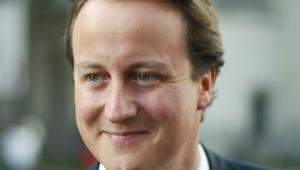Setting out the Conservative’s English manifesto today, the prime minister said the party’s proposal for English votes for English laws would be included in the first Budget in the next parliament if they form the government.
The plans would lead to the creation of a rate of income tax that would be voted on by English MPs alone.
The party’s English Manifesto said income tax was a shared UK tax and MPs from all parts of the UK will continue to have a decisive say on its shared elements even after the devolution to Holyrood, such as setting the Personal Allowance.
However, once powers over the setting of rates and bands was given to the Edinburgh parliament, an English rate would be set at Westminster to ensure that the levy was subject to the democratic approval of English MPs. As income tax is not devolved to Wales or Northern Ireland, MPs from these areas will also vote on this rate.
‘Soon, the Scottish Parliament will be voting to set its own levels of income tax – and rightly so – but that has clear implications,’ Cameron said.
‘English MPs will be unable to vote on the income tax paid by people in Aberdeen and Edinburgh, while Scottish MPs are able to vote on the tax you pay in Birmingham or Canterbury or Leeds.
‘It is simply unfair, and with English votes for English laws we will put it right.’
The decision to extend the principle of English consent to financial matter would also cover other taxes devolved to Holyrood, such as Stamp Duty.
Other changes confirmed in the Conservatives’ preferred EVEL plan include a change so that legislation deemed to affect only certain parts of the UK would only be considered by representatives from those areas, chosen in proportion to party strength.
There would also be a provision to ensure that no legislation affecting only England would be able to pass the House of Commons without being approved in a Grand Committee made up of all English MPs.
Cameron also set out a series of pledges for English public services, including spending more real-terms health spending to deliver a seven-day NHS, continuing the government’s school reforms, and funding three million new apprenticeships.




















